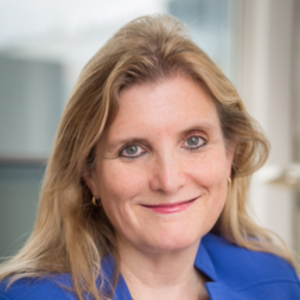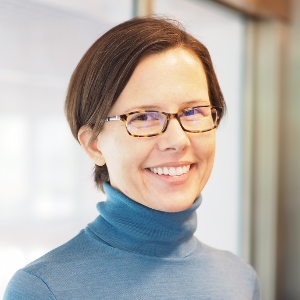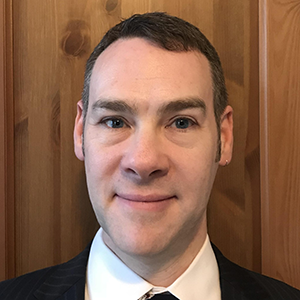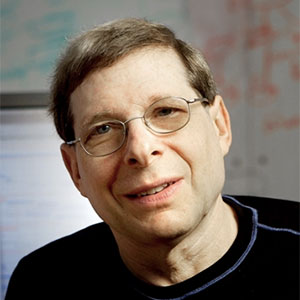Session Abstract – PMWC 2019 Silicon Valley
Session Synopsis: Traditionally, the majority of evidence regarding the benefits and risks of cancer treatments is derived from clinical trial populations. However, the vast majority of cancer patients receive treatment outside the context of clinical trials. There is tremendous motivation to evaluate the benefits and risks of cancer treatments delivered in the context of “real world” care. Real-world evidence (RWE) is typically defined as treatment that is not delivered in accordance with an investigational protocol and therefore lacks clearly specified endpoints and assessment intervals for determining benefit. This session will cover opportunities and challenges in using real-world evidence to inform clinical decision making in cancer. The session will review opportunities and challenges in defining real world endpoints and the development of methods and analytical tools capable of generating insights from RWD.
Session Chair Profile
M.D., Professor, Medicine, Harvard Medical School; Chief, Division of Population Sciences, Medical Oncology, Dana-Farber Cancer Institute
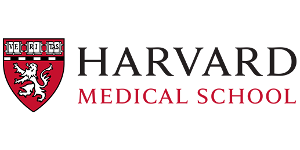
Biography
Dr. Schrag received her medical degree from Columbia University in New York in 1991. She subsequently completed her residency in Internal Medicine at Brigham and Women’s Hospital, and her fellowship in Medical Oncology at Dana-Farber Cancer Institute. She obtained a Masters in Public Health from the Harvard School of Public Health in 1998, and joined the staff of DFCI and Brigham and Women’s Hospital. From 1999 through 2007, Dr. Schrag practiced medical oncology in the Division of Gastrointestinal Oncology at Memorial Sloan-Kettering Cancer Center, where she was an Associate Member and Associate Professor of Public Health and Medicine. In 2007, she returned to DFCI and Brigham and Womens Hospital, where she is a medical oncologist and clinical investigator in the Center for Gastrointestinal Oncology. Her research focuses on utilization of new cancer treatment technologies at the population level.
Speaker Profile
M.D., MPH, FACP, VP, Strategic Data and Digital, US Oncology, Novartis
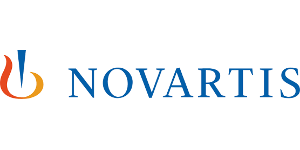
Biography
Mary Margaret (“Mimi”) Huizinga, MD MPH FACP, is the Vice President, Strategic Data and Digital for US Oncology at Novartis. Dr. Huizinga leads the digital and data strategies and supports the broader digital, data and real world evidence needs for US Oncology. In addition, she oversees the generation and dissemination of value evidence at Novartis through the work of the HEOR (health economics and outcomes research) team. Prior to joining Novartis, Dr. Huizinga was the Chief Health Information Officer at Premier, Inc., ensuring that Premier’s products and services met the evolving needs of healthcare systems. She led Premier’s Applied Science division and oversaw a collaborative of over 40 integrated delivery networks that were participating in alternative payment models. She led the development of a benchmarking approach that helped systems prioritize efforts to achieve success in these programs. Dr. Huizinga was a core faculty in three of CMS’s learning action networks for Pioneer ACOs, Next Generation ACOs and ESCOs (ESRD Seamless Care Organization). She was a member of various National Quality Forum (NQF) and PCPI committees. Dr. Huizinga received a Doctor of Medicine and a Master of Public Health in Epidemiology from Vanderbilt University School of Medicine in Nashville, TN. Dr. Huizinga completed a fellowship in Quality Improvement at the VA hospital in Nashville. She is a board-certified internist, a Fellow of the American College of Physicians and a part-time Assistant Professor of Medicine at The Johns Hopkins University School of Medicine.
Speaker Profile
Ph.D., Director, AACR Project Genie Coordinating Center, American Association for Cancer Research

Biography
Shawn M. Sweeney, PhD is the Director of the AACR Project GENIE Coordinating Center and project lead and has been with the project since its inception. His prior roles at the AACR include serving as liaison for four of the AACR scientific working groups; project lead and content developer for the AACR Cancer Progress Report series (2011- 2016); and as an internal scientific consultant. Before joining the AACR, Sweeney was a postdoctoral researcher and Research Associate in the Cardiovascular Institute and the Institute for Medicine and Engineering at the University of Pennsylvania, respectively. His more than 15-year career in research focused on the role of the microenvironment in cardiovascular development and disease, as well as in breast cancer metastasis with an active drug development program. Sweeney was also an adjunct Associate Professor of Medicine at the School of Medicine of the International University of the Health Sciences (2008-2017). He firmly believes in the power of bicycles to transform individuals, neighborhoods, cities, countries, and ultimately the world.
Speaker Profile
Ph.D., Founder & Chairman, Cancer Commons
Biography
Marty Tenenbaum is a renowned computer scientist, Internet entrepreneur and cancer warrior. He is the Founder and Chairman of Cancer Commons, a non-profit network of physicians, scientists, and patients that Newsweek dubbed the “LinkedIn of Cancer.” He began his career in AI, leading elite research groups at SRI International and Schlumberger Ltd. Later, as an Internet commerce pioneer, he founded or co-founded five successful startups. Dr. Tenenbaum is a fellow and former board member of the American Association for Artificial Intelligence, a former Director of Commerce One, the Public Library of Science (PLoS) and Patients Like Me, and a former consulting professor of Computer Science at Stanford. He currently serves as a Director of CommerceNet and Efficient Finance. Dr. Tenenbaum holds B.S. and M.S. degrees in Electrical Engineering from MIT, and a Ph.D. from Stanford, and has received numerous awards for his contributions to AI and his work as a patient advocate.


